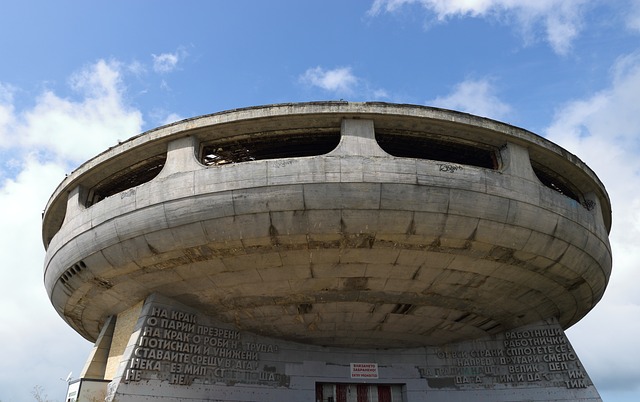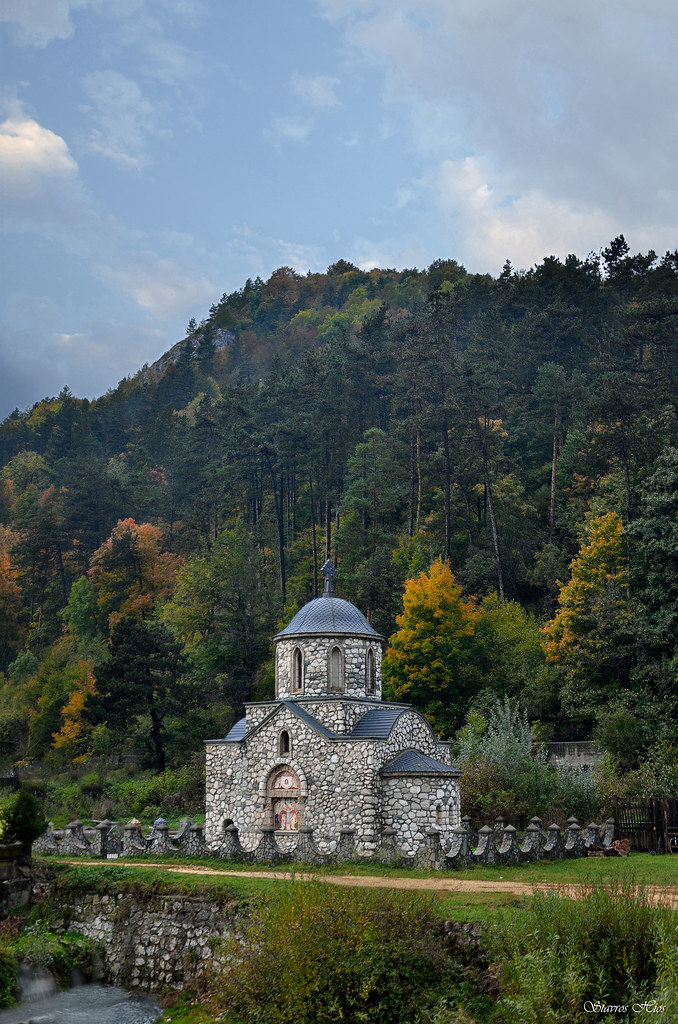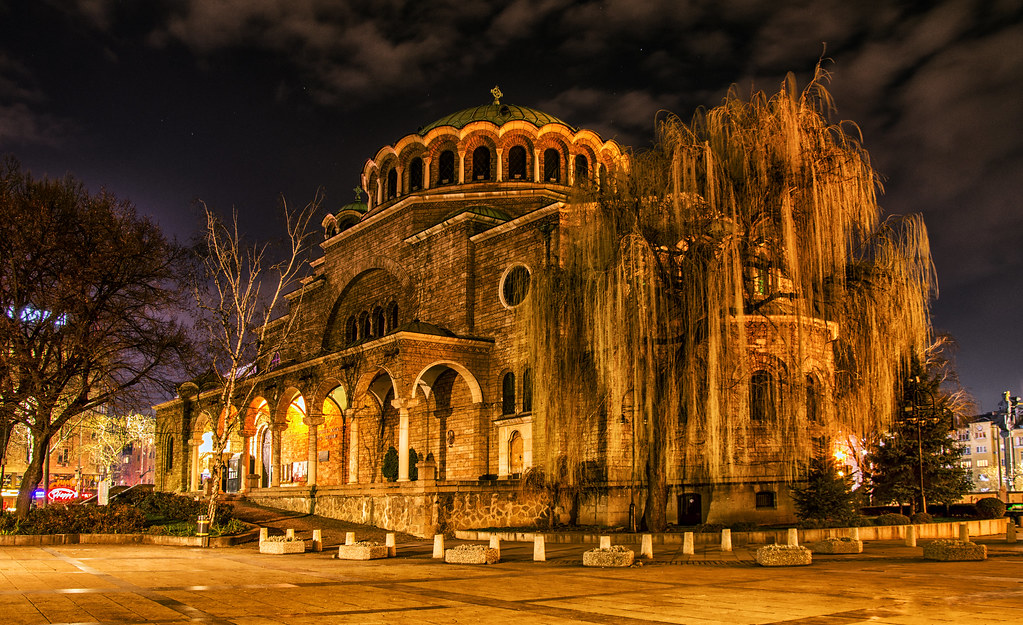In the realm of history, certain chapters hold a fierce grip on our collective imagination, weaving tales of triumph, oppression, and revolution. Among them, the tale of Communist Bulgaria stands resolute, a captivating narrative spanning four extraordinary decades. Steeped in an era of ideological turbulence, this southeastern European nation witnessed the rise and fall of socialist ideals, leaving an indelible mark on its people and shaping the very landscape in which its compelling story unfolds. Join us as we embark on a journey through Communist Bulgaria, unravelling the intricacies of this tumultuous period, where stirring passions collided with ironclad policies, redefining the nation and its people in countless ways. Brace yourselves for an intellectual odyssey, as we set foot into the annals of Bulgarian history, guiding you through a politically lush terrain where perspectives converge and diverge, all in pursuit of understanding a chapter overshadowed by both splendor and suffering. Fascinating, complex, and far from monochrome, the story of Communist Bulgaria awaits, beckoning us to delve deep into its uncharted depths, seeking truth, and contemplating the echoes that linger long after the final chapter was written.
The Rise of Communism in Bulgaria: From People’s Revolution to Socialist State
Communist Bulgaria: A Forty-Year Journey
Communism, a dominant ideology during the 20th century, gained significant traction in Bulgaria, transforming the nation into a socialist state. The journey of Bulgaria’s transition from a capitalist society to a communist regime was marked by a series of events that shaped the nation’s history for more than four decades.
Here are some key milestones during Bulgaria’s communist era:
- People’s Revolution: In 1944, fueled by economic hardships and a desire for change, the Bulgarian Communist Party led a successful coup against the ruling authorities. This marked the beginning of the communist rule, overthrowing the monarchy and establishing a socialist government.
- Collectivization and Industrialization: The 1950s witnessed the rapid collectivization of agriculture, leading to the formation of vast state-controlled farms known as collective farms. Simultaneously, Bulgaria embarked on an ambitious industrialization drive, aiming to strengthen its economic foundation through the development of heavy industry sectors.

Understanding the Impact of Communist Rule on Bulgarian Society: Economy, Culture, and Ideology
Communist Bulgaria: A Forty-Year Journey
Embarking on a transformative four-decade period, communist rule left an indelible mark on Bulgarian society, altering its economy, culture, and ideology in profound ways. The nation’s economy underwent massive restructuring as the communist regime imposed a centrally planned system. Bold industrialization efforts were initiated, leading to the rapid growth of heavy industries such as metallurgy, machinery, and chemicals. However, this focus on heavy industries came at the expense of neglecting other sectors, resulting in imbalanced development. The communist government sought to control supply and demand through state-owned enterprises, leading to a lack of innovation, inefficiencies, and a decline in the quality of goods and services.
Under communist rule, Bulgarian culture experienced a profound shift as the regime aimed to create a new social order, firmly rooted in Marxist ideology. The arts were enlisted to serve the state and promote socialist values. Artists, writers, and musicians were expected to glorify the proletariat and communism while conforming to strict censorship and propaganda guidelines. As a result, works of art became channels for political messages, often lacking in aesthetic and intellectual diversity. The education system was also heavily influenced by communist ideology, with an emphasis on collective values and obedience to the state. Yet, this propagandistic approach and suppression of dissent eventually led to a stifling of intellectual growth and cultural expression.

Reflections on the Communist Legacy in Bulgaria: Challenges and Prospects for the Future
As we look back on the forty-year journey of Communist Bulgaria, it is impossible to ignore the profound impact it has had on the nation and its people. The legacy of this period is a complex tapestry of successes and failures, challenges and achievements. It is a reflection of a time when ideals clashed with realities, and dreams were both realized and shattered.
One of the key challenges that Bulgaria faces when confronting its Communist legacy is the task of reconciling the conflicting narratives that have emerged. For some, the period represents a time of economic stability and social progress, with improved healthcare and education systems. The construction of grand public buildings and infrastructure projects stands as a testament to the ambitious vision of the Communist regime.
- However, it is crucial to acknowledge the dark side of this era, marked by political repression and the suppression of individual freedoms. The memories of forced labor camps and restrictions on personal expression still linger in the collective consciousness.
- Another significant aspect of the Communist legacy is the economic burden it placed on Bulgaria. Decades of centralized planning and lack of market economy mechanisms left the nation grappling with a struggling industrial sector, high debt, and uncompetitive enterprises.
- Today, Bulgaria is faced with the challenge of transforming its economy and reinventing itself in a globalized world.
Looking towards the future, there are both challenges and prospects for Bulgaria as it grapples with its Communist legacy. The nation must strive to strike a delicate balance between addressing the past and embracing the opportunities of the present. By embracing democratic values, strengthening institutions, and fostering an open dialogue, Bulgaria can gradually reconcile its past and forge a prosperous future.
In conclusion, the Communist legacy in Bulgaria is a complex and multifaceted one. It is essential for the nation to confront its history honestly and openly, acknowledging both the successes and failures. By doing so, Bulgaria can pave the way for a future that builds upon the lessons of the past, ensuring a stable and prosperous society for its citizens.

Recommendations for Reconciliation and Progress: Navigating Bulgaria’s Communist Past
Bulgaria’s communist past spans four decades, leaving an indelible mark on the country’s history and society. As we navigate the complex legacy of this period, it is essential to consider recommendations for reconciliation and progress. By embracing these suggestions, Bulgaria can pave a way forward that promotes understanding, healing, and a united future.
- Educational Initiatives: Implementing comprehensive educational programs that address the communist era truthfully and objectively. This includes incorporating the perspectives of all stakeholders and promoting critical thinking skills to analyze the complexities of the period.
- Open Dialogue: Encouraging open and respectful discussions about the communist past to foster understanding and empathy among different generations. Providing forums, conferences, and public events can create a platform for diverse voices, allowing for a broader perspective on this shared history.
- Historical Sites: Preserving and commemorating historical sites from the communist era, transforming them into educational spaces that promote dialogue and reflection. By acknowledging the past, Bulgaria can create opportunities for remembrance, education, and understanding for future generations.
These recommendations for reconciliation and progress offer a starting point for Bulgaria’s journey towards addressing its communist past. By actively engaging in this process, the country can embrace an inclusive approach that acknowledges the diverse experiences and perspectives of those affected by this historical period. A collective effort towards reconciliation can pave the way for a brighter, more united future for Bulgaria.
In Summary
As the curtain closes on this remarkable journey through Communist Bulgaria, it is impossible not to be awestruck by the magnitude of its impact and the mosaic of experiences it entails. Swept away in waves of revolution, this nation defied conventions and stood tall as a flag-bearer of a unique ideology for four decades.
From the very moment the Iron Curtain descended, Communist Bulgaria donned its beguiling cloak, transforming the vibrant landscapes and historic cities into a theater of ideological experimentation. The echoes of political tenacity and societal upheaval continue to reverberate through the narratives of those who lived through these tumultuous times.
A country once chained by monarchy’s grip, Bulgaria’s transformative journey towards Communism steered its society towards uncharted territory. Steeped in a clash of grand ideologies, the nation became a melting pot, giving birth to dreams of egalitarianism and a vision for an equitable future. A journey not without its challenges or sacrifices, but one that would ultimately shape the destiny of Bulgaria and its citizens.
As our voyage unfolded, we traversed the bustling concrete avenues where socialist realism left its indelible mark, marveling at the architectural symphonies that stood as silent witnesses to a turbulent era. The “monumental” artistic expressions, not mere structures but rather fervent manifestos etched in stone, forever etching the spirit of a nation determined to establish its own distinct narrative.
Yet, amidst the fervor, a somber undercurrent threaded the fabric of Bulgarian society. Four decades under Communism brought forth its own set of complexities and contradictions. While industries boomed and infrastructure developed, dissent was restricted, freedom was curtailed, and individualism curbed. As we delve deeper into this narrative, a delicate balance reveals itself, a dance between progress and oppression.
Communist Bulgaria was a nation that constantly adapted, embracing change while shielding its core beliefs. Its people, resilient and determined, endured hardships, stamped their own indomitable mark on history, and even sparked sparks of revolution that would reverberate far beyond its borders. The human spirit cannot be contained, even within the confines of a strict ideology, and this nation exemplified that tenacity.
As we bid farewell to this captivating journey, we leave with a greater understanding of the complexities that shape a nation’s destiny. Communist Bulgaria may be consigned to the annals of history, but its profound impact continues to shape the lives and aspirations of its citizens. A testament to the power of ideology, the lines between utopia and dystopia blur, leaving us with a lingering question – what would a nation truly be without its journey?
As we step back into the present, the echoes of Communist Bulgaria continue to resonate. The memories, both bitter and sweet, intertwine, creating a tapestry of a nation that challenged norms, leaving a lasting legacy. So, as we return to our own narratives, our hearts and minds enriched, spare a thought for the land that dared to dream differently and created a chapter that will forever captivate the imagination.
And thus, the tale of Communist Bulgaria, with all its intrigue and contradictions, fades into memory, forever etched as a fragment of history’s grand narrative.

